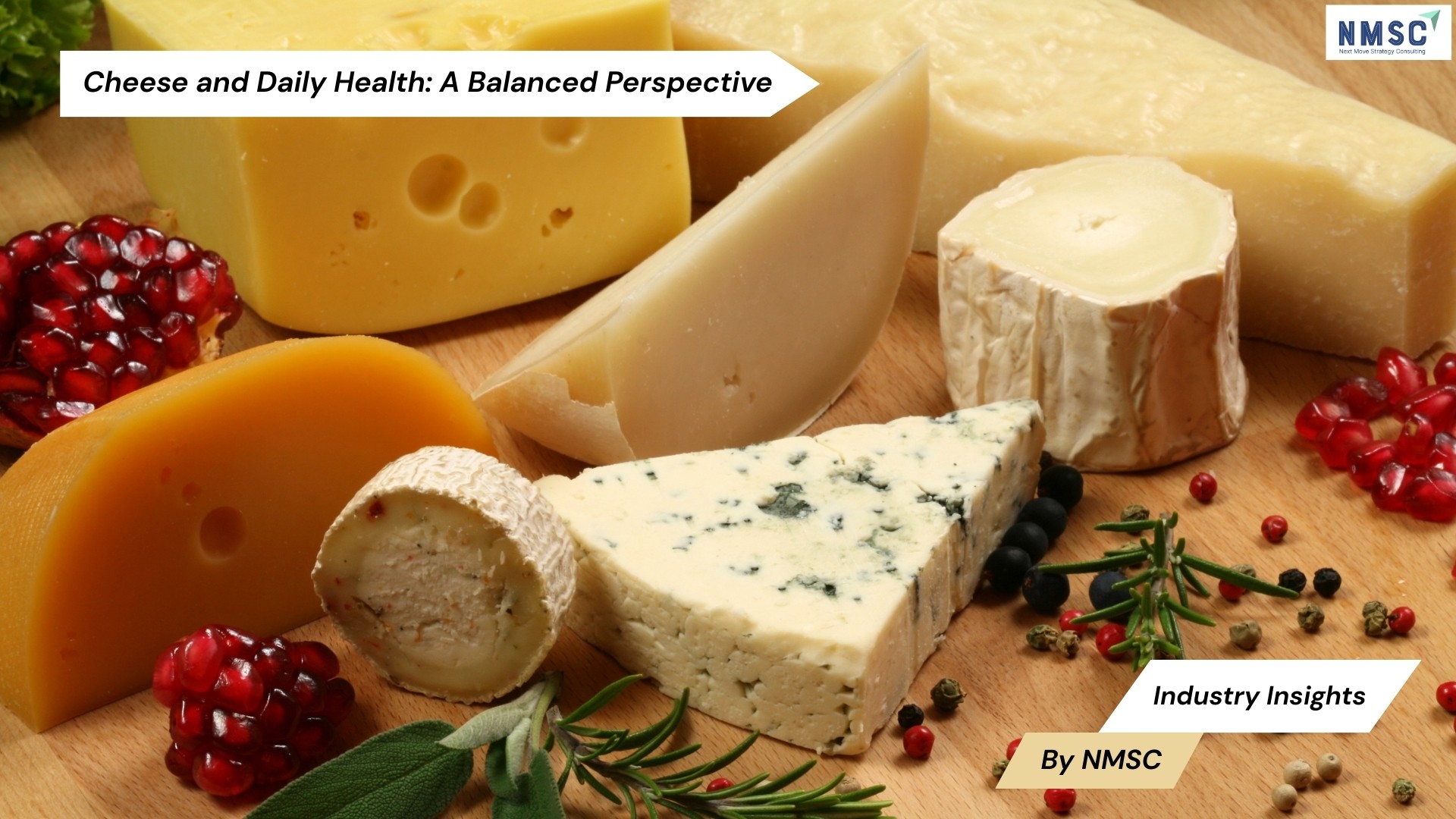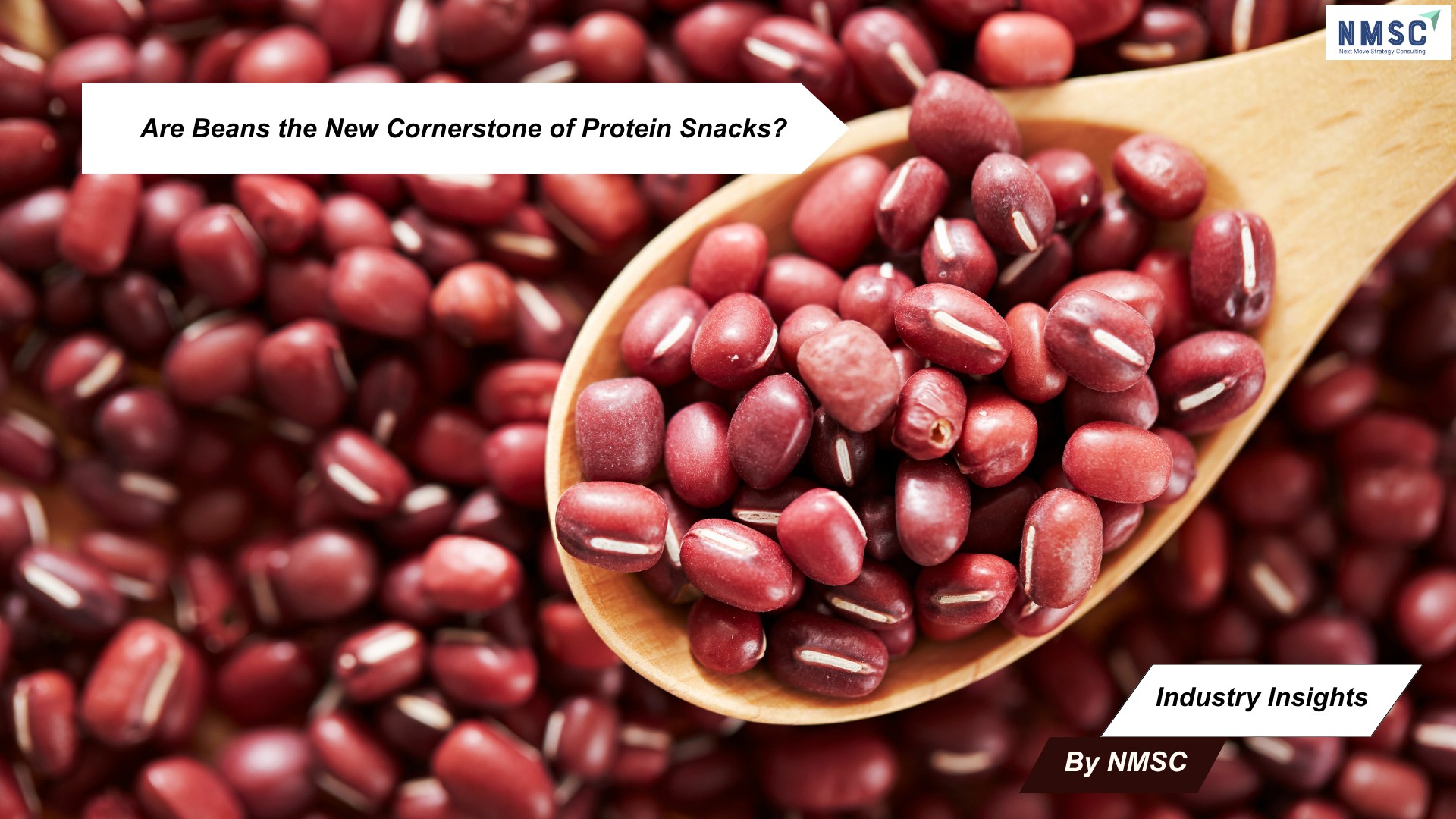Cheese and Daily Health: A Balanced Perspective
Published: 2025-09-17

Industry Insights from Next Move Strategy Consulting
Cheese has long been celebrated as a flavorful and versatile food, enhancing everything from pizzas and pastas to salads and sandwiches. But as its popularity grows across dining tables and food delivery platforms, an important question arises — what happens when cheese becomes part of our daily diet? Does it enrich health, or can it pose risks if consumed too often?
The Nutritional Upside of Daily Cheese Intake
For many, cheese is more than a treat; it is a source of vital nutrients. Rich in calcium, it plays a key role in strengthening bones and teeth while reducing risks of osteoporosis and fractures. Beyond bone health, cheese delivers high-quality protein, aiding in muscle repair and supporting weight management goals. Certain varieties — including feta and goat cheese — even contain probiotics, helping to maintain gut health and boost immunity by supporting a balanced microbiome.
Impact on Cheese Market – NMSC’s View
The news impacts cheese market by highlighting rising demand for healthier cheese varieties like feta, goat, and cottage cheese, while creating pressure on high-fat and processed options. It signals opportunities for product innovation in low-fat, low-sodium, and probiotic-rich cheeses, alongside growing interest in lactose-free and plant-based alternatives. Overall, health-driven preferences are reshaping the cheese market, pushing companies to balance taste with wellness and opening new growth avenues in premium, functional, and innovative cheese segments.
The Challenges of Overindulgence
While cheese brings undeniable benefits, daily overconsumption can create health concerns. Its high calorie content can contribute to weight gain, especially when portion sizes go unchecked. Many cheeses are also rich in saturated fats. For individuals with lactose intolerance, regular cheese intake can cause digestive discomfort, though lactose-free alternatives provide relief without sacrificing flavor.
Choosing the Right Cheese Matters
Not all cheeses are created equal, and informed choices can make a significant difference in health outcomes. Healthier options include:
-
Feta: Packed with protein, vitamins, and calcium.
-
Part-skim mozzarella: Lower in fat and calories.
-
Cottage cheese: High in protein, low in fat.
-
Goat cheese: Nutrient-rich and easier to digest for some.
A Balanced Conclusion
In conclusion, enjoying cheese in moderation is key to a balanced diet. By choosing healthier options and being mindful of portion sizes, you can savour the benefits of cheese while supporting your overall health. Whether cooking cheese-based dishes at home or ordering them through an informed choices can make all the difference.
Source: NDTV FOOD
Prepared by: Next Move Strategy Consulting
About the Author
 Pritish Braman is a Digital Marketing Executive with over a year of experience, specializing in content writing and online engagement. He enjoys creating clear, impactful content that connects with readers while also applying marketing strategies to reach wider audiences.
Pritish Braman is a Digital Marketing Executive with over a year of experience, specializing in content writing and online engagement. He enjoys creating clear, impactful content that connects with readers while also applying marketing strategies to reach wider audiences.
About the Reviewer
 Sanyukta Deb is a seasoned Content Writer and Team Leader in Digital Marketing, known for her expertise in crafting online visibility strategies and navigating the dynamic digital landscape. With a flair for developing data-driven campaigns and producing compelling, audience-focused content, she helps brands elevate their presence and deepen user engagement. Beyond her professional endeavors, Sanyukta finds inspiration in creative projects and design pursuits.
Sanyukta Deb is a seasoned Content Writer and Team Leader in Digital Marketing, known for her expertise in crafting online visibility strategies and navigating the dynamic digital landscape. With a flair for developing data-driven campaigns and producing compelling, audience-focused content, she helps brands elevate their presence and deepen user engagement. Beyond her professional endeavors, Sanyukta finds inspiration in creative projects and design pursuits.
















Add Comment